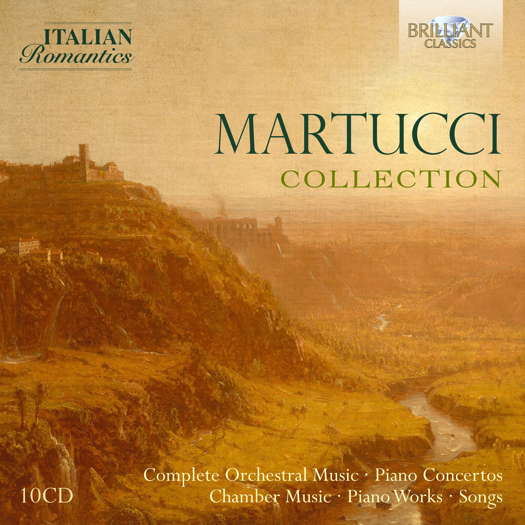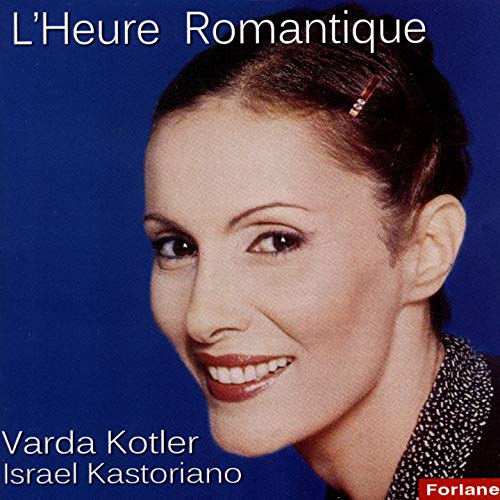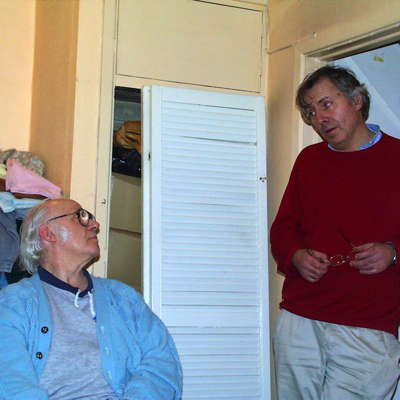- Pietro Alessandro Yon
- Chia-Ying Tu
- Orkney
- Ahmed Adnan Saygun
- Hugues Gall
- Michel Waisvisz
- Alexandre Tansman
- Riccardo Brengola

Surprisingly Excellent
GERALD FENECH recommends music by Martucci
'... Martucci's music is so well crafted with an abundant spring of melody that one never tires of listening to it.'
Giuseppe Martucci was born in Capua, Italy, on 6 January 1856, and his father was his first musical tutor with whom young Giuseppe learned to play the piano. He gave recitals with his sister Teresa before he was nine and was a full-time student at the Reale College in Naples from 1868 where he kept studying the piano with Beniamino Cesi and composition with Paolo Serrao, whose advocacy of the Austro-German repertoire, unusual in Italy for that time, had a decisive influence on the future composer.
Returning to the concert platform in 1874, he gave his first recital in Milan the next year and subsequently toured London and Dublin. 1878 saw him in Paris, where his abilities as pianist and composer were warmly lauded, but more significant had been his appointment the previous year as principal conductor of the newly formed Orchestra Napoletana, which gave its first public concert in 1881 and by 1884 was widely considered the best in Italy.
In 1886 Martucci was appointed to three major posts in Bologna, notably the directorship of the Liceo Musicale, which enabled him to develop further as an academic and conductor, championing a broad range of 19th century orchestral music and appearing as a guest conductor in cultural centres throughout Western Europe, while also acting as mentor to many younger Italian composers.
In 1902 he returned to Naples to take up the directorship of the Conservatorio, in which city he continued his programming of new or unfamiliar orchestral and operatic repertoire. By now his health was in steady decline and he died on 1 June 1909, aged only fifty-three.
From the very beginning of his career as a pianist Martucci extended the repertoire with Bach, Rameau and Scarlatti all prominent in his recitals. As a conductor he helped to make Berlioz, Schumann and Brahms familiar to Italian audiences. Indeed, in 1882 he gave the Italian premiere of the latter's Second Symphony. His championing of Wagner was indefatigable, and in 1888 Tristan und Isolde was heard for the first time on Italian soil. Less than a year before his death he gave the Neapolitan premiere of Götterdämmerung. British music was also well represented, programming Stanford's Third Symphony ('Irish') on many occasions, while his interest in French music saw Martucci advocate Franck, d'Indy and latterly Debussy.
As to his compositions, Martucci found a staunch supporter in the famous conductor Arturo Toscanini, and for a time his music enjoyed strong popularity, but after World War I his compositions fell out of favour and nowadays they are seldom performed.
Recorded between 2006 and 2014, this quite marvellous ten-CD collection of his symphonic, chamber and songs output is absolutely riveting.
Listen — Martucci: Allegro (Symphony No 2 in F, Op 81)
(96920 CD2 track 4, 0:00-0:56) ℗ 2009 Naxos Rights International :
Indeed Martucci's music is so well crafted with an abundant spring of melody that one never tires of listening to it.
Listen — Martucci: Minuetto (Allegro) (arranged for string quartet)
(96920 CD6 track 6, 0:00-0:58) ℗ 2016 Brilliant Classics :
The harmonic language is also so very imaginative and appealing. A surprisingly excellent Italian composer not connected with opera who deserves as much credit as any of his contemporary peers.
Listen — Martucci: Larghetto (Piano Concerto No 2 in B flat minor, Op 66)
(96920 CD4 track 2, 9:09-10:08) ℗ 2009 Naxos Rights International :
A memorable issue in fine sound and detailed annotations which I recommend with total conviction.
Copyright © 16 April 2024
Gerald Fenech,
Gzira, Malta





